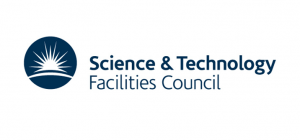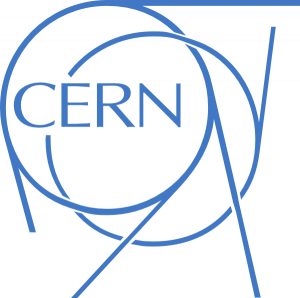Profile
Candice Basson
Curriculum Vitae
-
Education:
Ballard School, Brockenhurst College, Queen Mary University and University of Manchester
-
Qualifications:
Bsc and MSci in particle physics and working towards a PhD
-
Work History:
A steward at an army barracks, cub scout leader and presenter at a science museum
-
Current Job:
PhD student
-
Employer:
University of Manchester (funded by STFC) and CERN



-
About Me
I'm a particle physicist living in Geneva, Switzerland but have previously lived in England, New Zealand and am originally from South Africa.
-
Read more
I live in Geneva, Switzerland but have previously lived in England, New Zealand and am originally from South Africa.
I have a lot of hobbies which means I tend to not focus on any long enough to get any good at it but gaming, sports and art are probably my main ones. Currently trying to keep up with the rugby world cup, swiss ice hockey and work all at once.
I also really love sharing my work with others which is how I ended up here.
Pronouns: she/her
-
My Work
I use one of the world's largest particle detectors to look for new tiny building blocks of our universe
-
Read more
I’m a 3rd year PhD student at the University of Manchester but get to spend time living in Geneva so I can work at CERN (Conseil Européen pour la Recherche Nucléaire). CERN is essentially a large international laboratory filled with experiments and people looking to better understand how our universe is made and works.
How does a giant detector in Switzerland help us understand the universe? Well we look at the building blocks of the universe from the Big Bang. A nice video on the beginning of everything:
Being based here is a great opportunity to meet a wide range of people from many different countries and specialties who all work at, or with, CERN.
For more information of how the LHC (Large Hardon(Proton) Collider) works
In more detail:
I specifically work with an analysis team looking for something called ‘dark matter’. We only know what approximately 5% of our universe is made of, this includes all of us, all the planets and all the stars. Theory predicts that about 25% of the universe is made of dark matter and particle physicists (like me!) think it could be made of particles so we’re using our particles detectors to look for these new dark matter particles.
I also help work on some coding tools for particle identification in the ATLAS detector.
To have a closer look at my detector:
-
My Typical Day: The great thing about my job is that there isn't really a 'typical' day. My work hours are somewhat my choice so some days are short and others are long. In general I try and get in by 10am, catch up on emails and start working on my code where I left off. Around 1pm I'll join my colleagues for lunch in one of the CERN cafeterias. After lunch it's back to code until I decide to go home.
-
Read more
First thing I usually do is check my email and sort through anything relevant and delete anything that isn’t. It gives a clean start to the day and gives me time to wake up as I hate mornings.
Sometimes I have morning meetings which I’ll join from my desk over video. As CERN is a big collaboration there are many group meetings that keep everyone in the loop on what everyone is working on individually and allows people to get advice on how to progress or solve an issue they may be having. I also have weekly one on one meetings with my supervisor to get support on my work.
Most of my time is spent writing or fixing code within my analysis groups. Sometimes it all works and I get to make plots which tell me different things about what we’re looking for (for example the mass of particles). During the early stages we use these plots to check what we coded made sense, does the plot look like what we expected? If not, why? Once everything is done and everyone is happy, we start to write a paper to present our results to the rest of CERN and the public. This entire process can take two years and a team of people. We’re currently nearing that stage on my analysis and it is both exciting and terrifying as there is much to do.
An advantage to being based at CERN while the experiments are shut down is the ability to tour the experiments and to also give tours. I’m often out of my office to either train as a guide or give tours. After almost a year, I still haven’t tired of going to visit my detector, ATLAS up close.
I also like to escape the office for lunch or a coffee with colleagues. Either the regular ones based here or someone who is just passing through as CERN is the central hub for all of us.
There are times my ‘typical’ day completely deviates as we travel frequently for this job. Either for conferences or meetings. Sometimes it’s not far and you can just go by train but sometimes it’s abroad and we get to explore somewhere new. On these occasions everyday is meetings or presentations from 9am -5pm with some social activities after. It’s a lot but there’s always a lot to learn and new people to meet.
-
What I'd do with the money
Help one of the physics outreach groups at UoM
-
My Interview
-
How would you describe yourself in 3 words?
Curious, Stubborn, Direct
What's the best thing you've done in your career?
Gotten to work at CERN and visit the amazing experiments here
What or who inspired you to follow your career?
Most recently, my supervisors during undergrad but in general, so many teachers and my family
What was your favourite subject at school?
Art
What did you want to be after you left school?
A zoo keeper or mechanic
Were you ever in trouble at school?
Not as much as I probably should have been
If you weren't doing this job, what would you choose instead?
Something statistics/ data based like risk assessment
Who is your favourite singer or band?
Difficult but probably Beach Boys or OneRepublic
What is the most fun thing you've done?
My first ski trip, I'd never seen snow before.
If you had 3 wishes for yourself what would they be? - be honest!
Successfully complete my PhD, get a dog (or a few) and keep on contact with my amazing friends here
Tell us a joke.
What did the scientist say when they found two isotopes of helium? HeHe.
-
